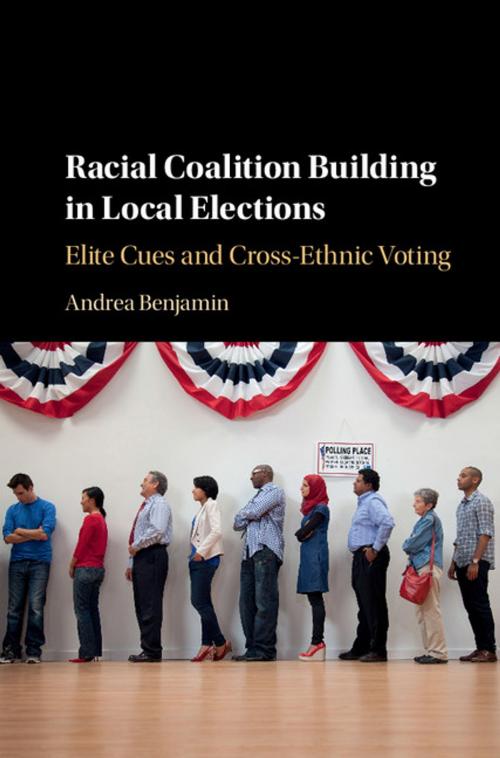Racial Coalition Building in Local Elections
Elite Cues and Cross-Ethnic Voting
Nonfiction, Social & Cultural Studies, Political Science, Government, Social Science| Author: | Andrea Benjamin | ISBN: | 9781108244695 |
| Publisher: | Cambridge University Press | Publication: | June 16, 2017 |
| Imprint: | Cambridge University Press | Language: | English |
| Author: | Andrea Benjamin |
| ISBN: | 9781108244695 |
| Publisher: | Cambridge University Press |
| Publication: | June 16, 2017 |
| Imprint: | Cambridge University Press |
| Language: | English |
This book examines racial and ethnic coalition building in local elections and considers Black and Latino political incorporation more broadly. Although many argue that Black and Latino voters have much to gain from alliances that advance shared interests, coalitions between the two groups have not always formed easily or been stable over time. Recent mayoral elections across the country show different patterns of out-group candidate support. This book seeks to explain these variations and the specific conditions under which Blacks and Latinos vote for the same candidate. Drawing on large-n observational data, survey experiments, and qualitative case studies, Benjamin develops a theory of co-ethnic endorsements, which points to the significance of elite cues from Black and Latino leaders. The book demonstrates that voters use elite co-ethnic endorsements to help inform their votes, that they do so particularly when race is salient in an election, and that this has real implications for representation and access to political benefits.
This book examines racial and ethnic coalition building in local elections and considers Black and Latino political incorporation more broadly. Although many argue that Black and Latino voters have much to gain from alliances that advance shared interests, coalitions between the two groups have not always formed easily or been stable over time. Recent mayoral elections across the country show different patterns of out-group candidate support. This book seeks to explain these variations and the specific conditions under which Blacks and Latinos vote for the same candidate. Drawing on large-n observational data, survey experiments, and qualitative case studies, Benjamin develops a theory of co-ethnic endorsements, which points to the significance of elite cues from Black and Latino leaders. The book demonstrates that voters use elite co-ethnic endorsements to help inform their votes, that they do so particularly when race is salient in an election, and that this has real implications for representation and access to political benefits.















